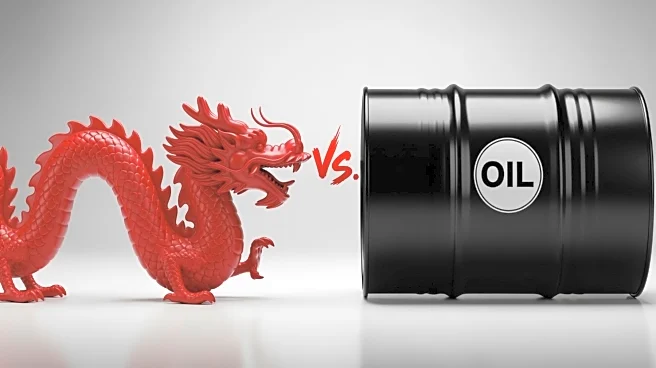What's Happening?
China has expressed opposition to the recent sanctions imposed by the Trump administration on Russia's largest oil companies, Lukoil and Rosneft. The sanctions are part of an effort to pressure Russia to end
its war against Ukraine. The U.S. Treasury Department announced these measures following Russia's refusal to agree to a ceasefire proposed by President Trump. China, a key strategic partner of Russia and a major purchaser of its oil, has stated through its foreign ministry spokesperson, Guo Jiakun, that unilateral sanctions without international law or United Nations Security Council authorization are not acceptable. President Trump has indicated that China could play a significant role in influencing Russia's decisions regarding Ukraine.
Why It's Important?
The sanctions are significant as they aim to cut off vital revenue streams that support Russia's war economy. By targeting major oil companies, the U.S. seeks to increase economic pressure on Moscow. This move also highlights the geopolitical dynamics involving China, Russia, and the U.S., as China’s response could affect the effectiveness of the sanctions. The sanctions have been welcomed by Ukrainian President Volodymyr Zelensky, who views them as a necessary step to pressure Russia into negotiations. However, the Kremlin has reacted strongly, with Dmitry Medvedev labeling the sanctions as an 'act of war,' indicating potential escalation in tensions between the U.S. and Russia.
What's Next?
The international community will be closely watching China's next moves, as its continued purchase of Russian oil could undermine the sanctions' impact. Additionally, the U.S. and its allies may consider further economic measures if Russia remains unyielding. The situation could lead to increased diplomatic efforts or further sanctions, depending on Russia's response and the level of international cooperation in enforcing these measures.











